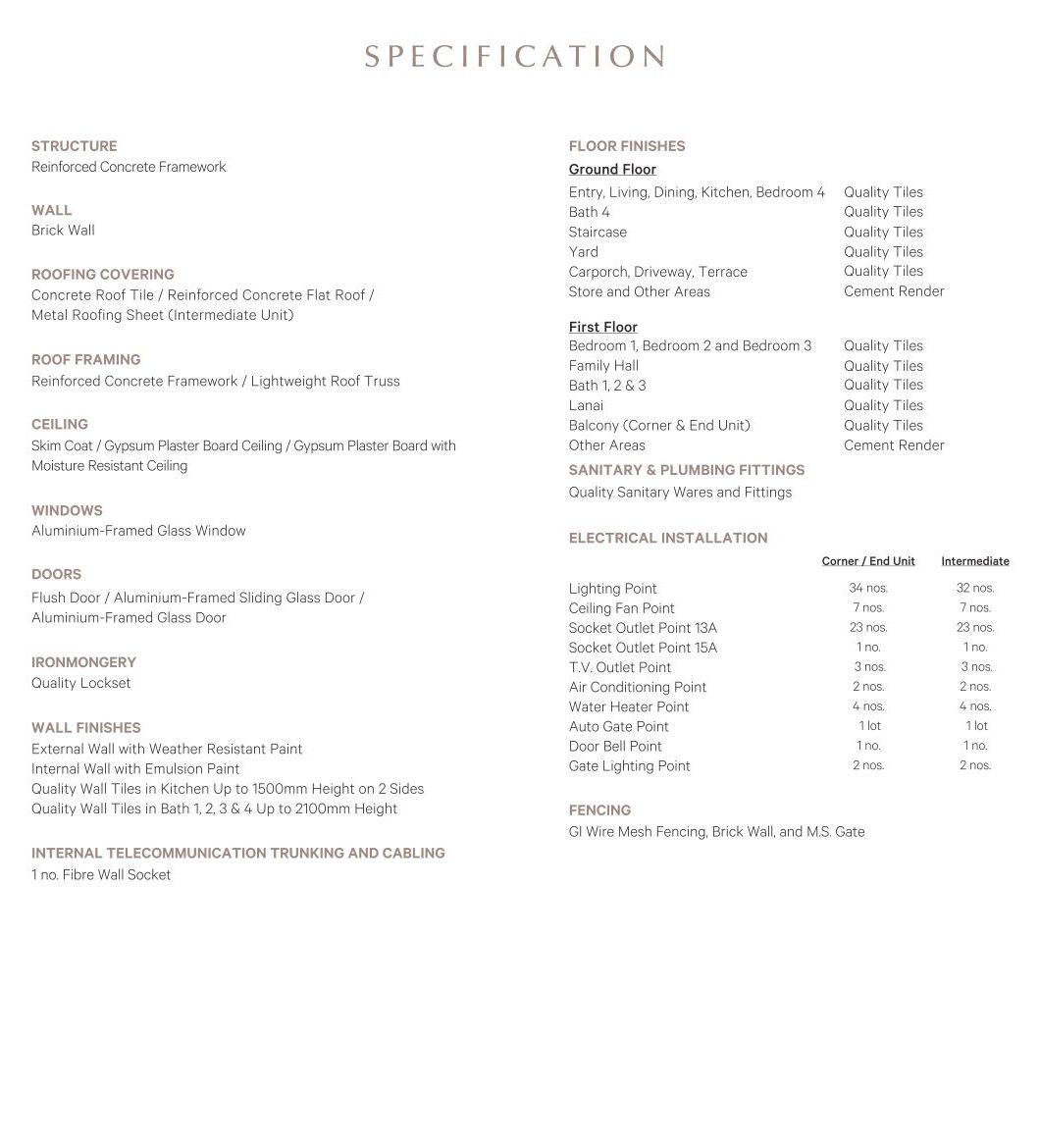Anti-Bribery And Corruption Policy
INTRODUCTION
This Anti-Bribery and Corruption Policy (“this or the Anti-Bribery and Corruption Policy/this or the Policy”) is issued pursuant to Section 17A of the Malaysian Anti-Corruption Commission (Amendment) Act 2018 (Act A1567) (“MACC Amendment Act 2018”) read together with the Malaysian Anti-Corruption Commission Act 2009 (Act 694) (“MACC Act 2009”) (collectively called “MACC Act 2009 (MACC Amendment Act 2018)”).
1.2 The provisions of section 17A of the MACC Amendment Act 2018 establishes the principle of an organization’s criminal liability (corporate liability) for the corrupt practices of its associated persons (i.e. director, partner or employees/personnel/staffs of the organization or the person who performs services for or on behalf of the organization such as a vendor, supplier, contractor, sub-contractor, business partner or third party) where such corrupt practices are carried out for the organization’s benefit or advantage, whilst the organization does not have adequate policies/procedures on anti-corruption and bribery in place.
1.3 In conjunction with the above, Gunung Impian Development Sdn. Bhd. (199101001129 (211440-A)) (“the Company”) adopts an anti- corruption and bribery management process. The need to implement this process supports sustainable development goal by combating Bribery and Corruption (as defined herein). This further showcases the Company’s commitment in upholding the highest level of ethics and integrity in the daily conduct of doing business.
1.4 This Policy should thus be read in conjunction with the Company’s various policies and guidelines such as the Anti-Bribery and Corruption Manual (“the ABAC Manual”) and the Employee Handbook. If multiple documents speak on the same subject, then the more stringent provision always applies.
1.5 Engaging in Bribery and Corruption can have severe consequences for Personnel and the Company. Personnel may face dismissal, fine and imprisonment and the Company may face damage to reputation, financial loss and disbarment from business and other negative consequences.
2. DEFINITION
2.1 “Bribery” means any action which would be considered as an offence of corruptly soliciting/receiving or offering/promising/giving “Gratification” or using office or position (abuse of power) for “Gratification” under the MACC Act.
In essence, this means offering, promising, giving, receiving or soliciting something of value in an attempt to illicitly influence the decisions or actions of a person in position of trust within an organization.
2.2 “Business Associates” means an external party with whom the Company has or plans to establish some form of business relationship. This includes but is not limited to clients, customers, joint venture partners, consortium partners, outsourcing providers, contractors, consultants, subcontractors, suppliers, vendors, advisers, agents, distributors, representatives, intermediaries and investors.
2.3 “Closely Related Person/Closely Related Persons” refers to both biological and non-biological relationships and includes but is not limited to someone a Personnel is related to (Relative or Immediate Family Member), having a personal friendship with or anyone living in the same household as the Personnel.
Relative or Immediate Family Member of the Personnel includes:
- spouse;
- siblings (brother/sister);
- spouse’s siblings;
- direct line of ascendants (parents/step-parents/grandparents) or descendant (children (including step-children and adopted children)/grandchildren) of the Personnel, Personnel’s spouse, Personnel’s siblings and Personnel’s spouse siblings;
- uncle, aunty or cousin;
- son-in law or daughter-in law.
2.4 “Company Secretary” means the internal company secretary employed by the Company.
2.5 “Conflict of Interest” means a situation in which a Personnel is in a position to take advantage of his or her role in the Company for his or her personal benefit or for the benefit of a Closely Related Person. A Conflict of Interest would undermine the duties of good faith, fidelity, diligence and integrity expected by the Company from its Personnel in the performance of his/her duties and obligations. The types of Conflict of Interest is defined more particularly in paragraph 13 hereof.
2.6 “Corporate Gift” means something given from one organization to another, with the appointed representatives of each organization giving and accepting the gift. Corporate gifts may also be promotional items given out equally to the general public at events, trade shows and exhibitions as part of building the Company’s brand. The gifts are given transparently and openly, with the implicit or explicit approval of all parties involved. Corporate gifts normally bear the Company name and logo. Examples of corporate gifts include items such as diaries, table calendars, pens, notepads and plaques.
2.7 “Corporate Hospitality” means the considerate care of Personnel or Business Associates or Public Officials, whether current, prospective or historic, which may include refreshments, accommodation and entertainment at a restaurant, hotel, club, resort, convention, concert, sporting events or other venues. Provision of travel may also be included, as may other services such as provision of guides, attendants and escorts; use of facilities such as a spa, golf course or ski resort with equipment included.
2.8 “Corruption” means abuse of entrusted power for personal gain (as defined by the Transparent International – see “Transparency International” below). This definition of corruption is used in this Policy. See also the definition for “Bribery”, which is the term used primarily in this Policy.
2.9 “Donations and Sponsorships” means charitable contributions and sponsorship payments made to support the community. Examples include sponsorship of educational events, supporting NGOs and other social causes.
2.10 “Director/Directors” means a director/the directors of the Company.
2.11 “Department/Division” means the respective departments/divisions of the Company.
2.12 “Entertainment” includes golf games, movies, karaoke, spa, orchestra, theater, concerts and other similar events.
2.13 “Gratification” as defined in the MACC Act 2009 means the following:
- money, donation, gift, loan, fee, reward, valuable security, property or interest in property being property of any description whether movable or immovable, financial benefit or any other similar advantage;
- any office, dignity, employment, contract of employment or services and agreement to give employment or render services in any capacity;
- any payment, release, discharge or liquidation of any loan, obligation or other liability, whether in whole or in part;
- any valuable consideration of any kind, any discount, commission, rebate, bonus, deduction or percentage;
- any forbearance to demand any money or money’s worth or valuable thing;
- any other service or favor of any description including protection from any penalty or disability incurred or apprehended or from any action or proceedings of a disciplinary, civil or criminal nature, whether or not already instituted, and including the exercise or the forbearance from the exercise of any right or any official power or duty; and
- any offer, undertaking or promise, whether conditional or unconditional, of any gratification within the meaning of any of the preceding paragraphs (a) to (f).
2.14 “Exposed Position” means a Personnel’s position identified as vulnerable to Bribery and Corruption through a risk assessment. Such positions may include any role involving procurement or contract management, financial approvals, human resource, relations with government officials or government departments, sales positions where negotiation with an external party is required or other positions which the Company has identified as vulnerable to Bribery and Corruption.
2.15 “EXCO Directors” means the Directors of the Executive Committee of the Company.
2.16 “GM” means the General Manager of the Company.
2.17 “HR & Administration Department” means the Human Resources and Administration Department of the Company.
- To foster the growth of a business environment that is free of Bribery and Corruption.
- To ensure all Personnel take reasonable measures to ensure their daily activities do not involve Bribery and Corruption.
- To provide guidance on how to recognize and deal with Bribery and Corruption issues.
- To avoid any penalty from the relevant authorities due to non-compliance of any acts related to integrity and Anti-Bribery and Corruption.
5. SCOPE
5.1 This Policy is applicable to the Company and all its Personnel.
5.2 It is also mandatory that all Business Associates and Public Officials comply with the relevant parts of this Policy when performing works or services for the Company.
6. POLICY OWNER
The Company is the owner of this Policy.
7. RECOGNITION OF LOCAL AND INTERNATIONAL LEGISLATION
8.1.3 Any gift of cash or cash value (e.g. vouchers, coupons, shares, commission, etc.) is strictly prohibited at all times.
8.1.4 Any gift which violates the terms of “No Gift Policy” must be declined/returned with an explanation note from the Personnel concerned thanking the external party (including Business Associates and Public Officials) for the gift and explaining politely about the Company’s “No Gift Policy” and to proceed to decline/return the gift accordingly.
8.2 Receiving Gifts
8.2.1 The Company is very much aware that in certain cultures or situations, gift giving is a central part of business etiquette. Despite acknowledging the Company’s “No-Gift Policy” some external parties (including Business Associates and Public Officials) may still insist in providing gifts to the Personnel and/or Closely Related Person.
8.2.2 Although the general principle is to immediately refuse such gifts, accepting a gift on behalf of the Company is allowed only in very limited circumstances, whereby refusing the gift is likely to seriously offend and may sever the business relationship between the Company and the external party (including Business Associates and Public Officials).
8.2.3 In these limited circumstances, Personnel may accept a gift (only Corporate Gifts, festive or ceremonial gifts), PROVIDED THAT ALL the following conditions (“Conditions for Receiving”) are fulfilled:
- Made for the right reason – It shall be clearly received as an act of appreciation or common courtesy associated with festive seasons or other ceremonial occasions;
- No obligation – It shall not be used to cause or induce the Personnel to improperly or illegally influence any business action or inaction or cause others to perceive an improper influence;
- No expectation – It shall be made without expectation of any favor or improper advantages from the Personnel;
- No Conflict of Interest – There shall be no Conflict of Interest in accepting/receiving the gift;
- Made openly – It shall not be made secretly and shall be documented;
- Reasonable value – Its type and value shall commensurate with the occasion and in accordance with the general business practice; and
- Legal – It shall be in compliance with the Applicable Laws and the provisions set out in this Policy & the ABAC Manual.
- Made for the right reason – It shall be clearly given as an act of appreciation or common courtesy associated with festive seasons or other ceremonial occasions;
- No obligation – It shall not be used to cause or induce the receiver to improperly or illegally influence any business action or inaction or cause others to perceive an improper influence;
- No expectation – It shall be made without any expectation of any favor of improper advantages from the receiver;
- No Conflict of Interest – There should be no Conflict of Interest in providing the gift;
- Made openly – It shall not be made secretly and must be documented;
- Reasonable value – Its type and value must commensurate with the occasion and in accordance with general business practice; and
- Legal – It shall be compliance with the Applicable Laws and the provisions set out in this Policy & the ABAC Manual.
- the Government of Malaysia;
- the Government of a State;
- any local authority and any other statutory authority;
- any department, service or undertaking of the Government of Malaysia, the Government of a State, or a local authority;
- any society registered under subsection 7(1) of the Societies Act 1966;
- any branch of a registered society established under section 12 of the Societies Act 1966;
- any sports body registered under section 17 of the Sports Development Act 1997;
- any co-operative society registered under section 7 of the Co-operative Societies Act 1993;
- any trade union registered under section 12 of the Trade Unions Act 1959;
- any youth society registered under section 9 of the Youth Societies and Youth Development Act 2007;
- any company or subsidiary company over which or in which any public body as is referred to in paragraph (a), (b), (c), (d), (e), (f), (g), (h), (i) or (j) has controlling power or interest; or
- any society, union, organization or body prescribe from time to time as a Public Body.
(“Public Official or Public Officials”)
“Relative” means:
- a spouse of the Public Official;
- a brother or sister of the Public Official;
- a brother or sister of the spouse of the Public Official;
- a lineal ascendant or descendant of the Public Official;
- a lineal ascendant or descendant of a spouse of the Public Official;
- a lineal descendant of a person referred to in paragraph(ii);
- the uncle, aunt or cousin of the Public Official; or
- the son-in-law or daughter-in-law of the Public Official.
- “Associate” means:
- any person who is a nominee or an employee of the Public Official;
- any person who manages the affairs of the Public Official;
- any organisation of which the Public Official, or any nominee of his, is a partner, or a person in charge or in control of, or has a controlling interest in, its business or affairs;
- any corporation within the meaning of the Companies Act 2016, of which the Public Official, or any nominee of his, is a director or is in charge or in control of its business or affairs, or in which such person, alone or together with any nominee of his, has or have a controlling interest, or shares to the total value of not less than thirty per centum (30%) of the total issued capital of the corporation; or
- the trustee of any trust, where:(a)the trust has been created by the Public Official; or(b)the total value of the assets contributed by the Public Official to the trust at any time, whether before or after the creation of the trust, amounts, at any time, to not less than twenty per centum (20%) of the total value of the assets of the trust.
3. “Closely Connected Individual” means:
- extended family members, such as relatives (biological or non-biological relationship);
- financially dependent individuals (i.e. persons salaried by the Public Official such as drivers, bodyguards, secretaries);
- business partners or associates;
- prominent members of the same organization as the Public Official;
- individuals working closely with the Public Official (i.e. work colleagues); or
- close friends.
8.8.3 Any business relationship with the Company involving Public Officials who otherwise has direct relationship with the Company, requires disclosure. In addition, specific prior approval for establishing business relationships with such Public Officials shall be obtained by Management of the Company from the Visiting Director.
8.8.4 All Personnel shall ensure that the Conditions for Providing as set out in paragraph 8.3.2 hereof and those set out in the ABAC Manual are fulfilled for provisions of gifts, Entertainment or Corporate Hospitality to any Public Official.
8.8.5 For more information on dealing with Public Officials, please refer to the ABAC Manual.
9. PRINCIPLES ON ANTI-BRIBERY AND CORRUPTION ON CORPORATE SOCIAL RESPONSIBILITY (CSR), DONATIONS AND SPONSORSHIPS
9.1 CSR, Donations and Sponsorships
9.2.4 All Personnel are prohibited from acting on the matters below without first obtaining the prior approval of the GM and the Visiting Director:
- using their position within the Company to try to influence any other person (whether or not employed by the Company) to make political contributions or to support politicians and/or their parties in any country;
- make any contribution or incur any expenditure using the Company’s resources to benefit any political campaign, party and/or politician in any country;
- the use of the Company’s facilities, equipment and resources for any political campaign and party function.
- Conduct due diligence to assess the integrity of the Business Associates. Do not enter into any business dealings with Business Associates reasonably suspected or engaged in Bribery and Corruption and improper business practices unless those suspicions are investigated and resolved.
- All Business Associates are made aware of the Company’s policy on Anti-Bribery and Corruption as stipulated in this Policy and the ABAC Manual.
- All Business Associates must sign the Company’s Business Associate’s Declaration Form
13. CONFLICT OF INTEREST
13.1 All Personnel should avoid situations in which Conflict of Interest could occur.
13.2 There are three (3) types of Conflict of Interest:
- An actual Conflict of Interest is when a Personnel is faced with a real and existing conflict.
- A potential Conflict of Interest is when a Personnel is in or could be in a situation that may result in a conflict, but this has not fully materialized.
- A perceived Conflict of Interest is when a Personnel is in or could be in a situation that may appear to be a conflict, even if it is not the case.
14. RECORD-KEEPING
All Departments/Divisions shall maintain written records evidencing that due- diligence has taken place and that any risks identified have been carefully considered and mitigated as practicably as possible.
15. WHISTLEBLOWING POLICY
15.1 The Company strongly encourages reporting (Whistleblowing) of real or suspected cases of Bribery and Corruption without fear of retaliation or reprisal.
15.2 The Company established an avenue for the reporting of Bribery, Corruption and other forms of misconduct, including violations of this Policy through designated secure channels, available to all Personnel and external parties including Business Associates. Details of the whistleblowing procedure are available in the Company’s Whistleblowing Policy.
16. TRAINING AND AWARENESS
17. AUDIT AND COMPLIANCE
Regular audits shall be conducted to ensure compliance to this Policy. Such audits may be conducted internally by the Company or by an external party. Audit documentation should include performance improvement action plans.
18. SANCTIONS FOR NON-COMPLIANCE
18.1 Non-compliance as identified by the audit and any risk areas identified through this Policy or the ABAC Manual and other means should be reported to the Visiting Director or EXCO Directors in a timely manner in accordance with the level of risk identified.
18.2 The Company regards acts of Bribery and Corruption as serious matters and will apply penalties in the event of non-compliance to this Policy and the provisions of the ABAC Manual.l and other means should be reported to the Visiting Director or EXCO Directors in a timely manner in accordance with the level of risk identified.
19. REVISION
This Policy shall be updated, amended or revised from time to time to ensure that it continues to remain relevant and appropriate.
Anti-Bribery and Corruption Policy
1. Introduction
1.1 This Anti-Bribery and Corruption Policy (“this or the Anti-Bribery and Corruption Policy/this or the Policy”) is issued pursuant to Section 17A of the Malaysian Anti-Corruption Commission (Amendment) Act 2018 (Act A1567) (“MACC Amendment Act 2018”) read together with the Malaysian Anti-Corruption Commission Act 2009 (Act 694) (“MACC Act 2009”) (collectively called “MACC Act 2009 (MACC Amendment Act 2018)”).
1.2 The provisions of section 17A of the MACC Amendment Act 2018 establishes the principle of an organization’s criminal liability (corporate liability) for the corrupt practices of its associated persons (i.e. director, partner or employees/personnel/staffs of the organization or the person who performs services for or on behalf of the organization such as a vendor, supplier, contractor, sub-contractor, business partner or third party) where such corrupt practices are carried out for the organization’s benefit or advantage, whilst the organization does not have adequate policies/procedures on anti-corruption and bribery in place.
1.3 In conjunction with the above, Gunung Impian Development Sdn. Bhd. (199101001129 (211440-A)) (“the Company”) adopts an anti-corruption and bribery management process. The need to implement this process supports sustainable development goals by combating Bribery and Corruption (as defined herein). This further showcases the Company’s commitment to upholding the highest level of ethics and integrity in the daily conduct of doing business.
1.4 This Policy should thus be read in conjunction with the Company’s various policies and guidelines such as the Anti-Bribery and Corruption Manual (“the ABAC Manual”) and the Employee Handbook. If multiple documents speak on the same subject, then the more stringent provision always applies.
1.5 Engaging in Bribery and Corruption can have severe consequences for Personnel and the Company. Personnel may face dismissal, fines, and imprisonment, while the Company may face damage to reputation, financial loss, disbarment from business, and other negative consequences.
2. Definition
2.1 “Bribery” means any action which would be considered as an offence of corruptly soliciting/receiving or offering/promising/giving “Gratification” or using office or position (abuse of power) for “Gratification” under the MACC Act.
2.2 “Business Associates” means an external party with whom the Company has or plans to establish some form of business relationship. This includes but is not limited to clients, customers, joint venture partners, consortium partners, outsourcing providers, contractors, consultants, subcontractors, suppliers, vendors, advisers, agents, distributors, representatives, intermediaries, and investors.
2.3 “Closely Related Person/Closely Related Persons” refers to both biological and non-biological relationships and includes but is not limited to someone a Personnel is related to (Relative or Immediate Family Member), having a personal friendship with, or anyone living in the same household as the Personnel.
2.4 “Company Secretary” means the internal company secretary employed by the Company.
2.5 “Conflict of Interest” means a situation in which a Personnel is in a position to take advantage of his or her role in the Company for his or her personal benefit or for the benefit of a Closely Related Person. A Conflict of Interest would undermine the duties of good faith, fidelity, diligence, and integrity expected by the Company from its Personnel in the performance of his/her duties and obligations. The types of Conflict of Interest are defined more particularly in paragraph 13 hereof.
2.6 “Corporate Gift” means something given from one organization to another, with the appointed representatives of each organization giving and accepting the gift. Corporate gifts may also be promotional items given out equally to the general public at events, trade shows, and exhibitions as part of building the Company’s brand. The gifts are given transparently and openly, with the implicit or explicit approval of all parties involved. Corporate gifts normally bear the Company name and logo. Examples of corporate gifts include items such as diaries, table calendars, pens, notepads, and plaques.
2.7 “Corporate Hospitality” means the considerate care of Personnel or Business Associates or Public Officials, whether current, prospective, or historic, which may include refreshments, accommodation, and entertainment at a restaurant, hotel, club, resort, convention, concert, sporting events, or other venues. Provision of travel may also be included, as may other services such as provision of guides, attendants, and escorts; use of facilities such as a spa, golf course, or ski resort with equipment included.
2.8 “Corruption” means abuse of entrusted power for personal gain (as defined by Transparency International). This definition of corruption is used in this Policy. See also the definition for “Bribery”, which is the term used primarily in this Policy.
2.9 “Donations and Sponsorships” means charitable contributions and sponsorship payments made to support the community. Examples include sponsorship of educational events, supporting NGOs, and other social causes.
2.10 “Director/Directors” means a director/the directors of the Company.
2.11 “Department/Division” means the respective departments/divisions of the Company.
2.12 “Entertainment” includes golf games, movies, karaoke, spa, orchestra, theater, concerts, and other similar events.
2.13 “Gratification” as defined in the MACC Act 2009 means the following:
- money, donation, gift, loan, fee, reward, valuable security, property or interest in property;
- any office, dignity, employment, contract of employment or services;
- any payment, release, discharge or liquidation of any loan;
- any valuable consideration of any kind, any discount, commission, rebate, bonus;
- any forbearance to demand any money or valuable thing;
- any service or favor, including protection from penalty or any action.









